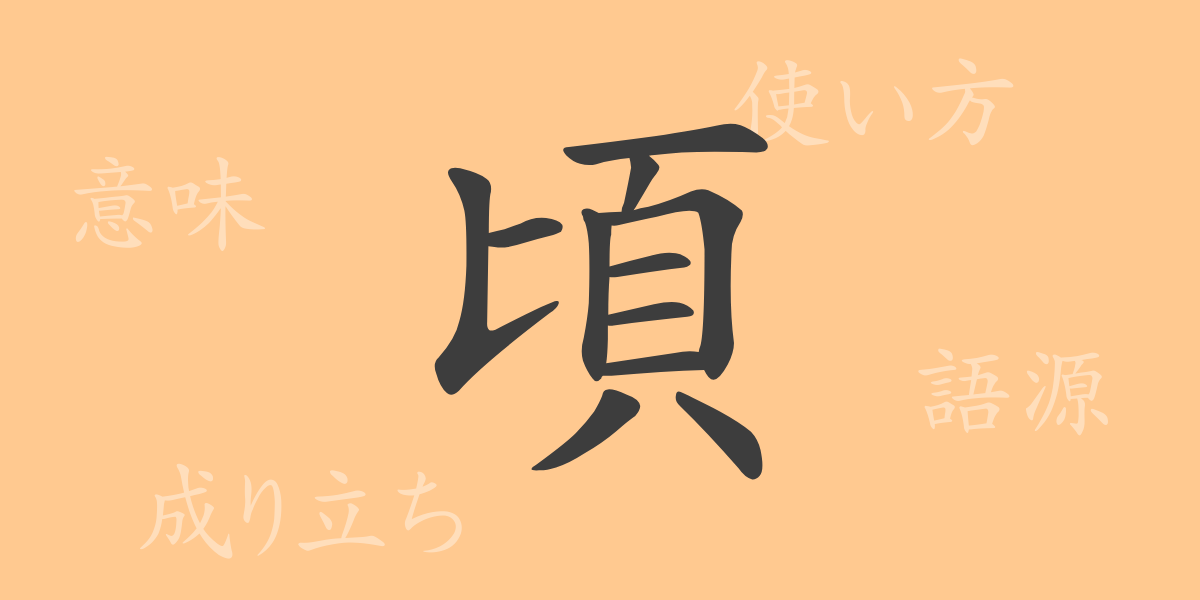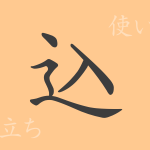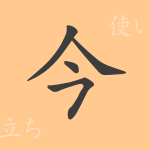One of the charms of the Japanese language lies in its rich kanji culture. The commonly used kanji “頃(ころ, koro)” is indispensable when expressing time and periods in daily life. The unique nuances this character holds enrich the expressiveness of Japanese. In this article, we will delve into everything about “頃(ころ, koro),” from its origin and meaning to its usage and related idioms and proverbs.
Origin of 頃(ころ, koro)
The kanji “頃(ころ, koro)” has been used since ancient times in China. It originally combined the kanji “斗(と, to)” representing a vessel for measuring grain and “方(ほう, hou)” indicating direction. This combination represented abstract concepts of time and periods through the concrete shape of objects, forming the basis of “頃(ころ, koro)” as we know it today.
Meaning and Usage of 頃(ころ, koro)
“頃(ころ, koro)” means “a certain period” or “approximate time.” It can also metaphorically represent “the state of that time.” It is commonly used in combination with words indicating seasons or time, such as “春頃(はるごろ, haru goro)” (around spring) and “夕方頃(ゆうがたごろ, yuugata goro)” (around evening). Additionally, it is used to indicate stages of growth, such as in “子供の頃(こどものころ, kodomo no koro)” (when I was a child).
Reading, Stroke Count, and Radical of 頃(ころ, koro)
The kanji “頃(ころ, koro)” has several points to know about its reading and structure.
- Readings: The on’yomi (音読み) is “ケイ(けい, kei),” and the kun’yomi (訓読み) readings are “ころ(ころ, koro)” and “ごろ(ごろ, goro).”
- Stroke count: “頃(ころ, koro)” consists of 11 strokes.
- Radical: The radical is “頁(おおがい, oogai),” representing the head.
Idioms, Phrases, and Proverbs Using 頃(ころ, koro)
There are many idioms, phrases, and proverbs containing “頃(ころ, koro),” each with its own unique meaning and nuance. For example, “年頃(としごろ, toshigoro)” refers to a young person who is growing up, “時節柄(じせつがら, jisetsugara)” indicates something appropriate for the season, and “花の頃(はなのころ, hana no koro)” metaphorically expresses the youth or prime of life.
Conclusion on 頃(ころ, koro)
The kanji “頃(ころ, koro)” is a very convenient character for expressing times and periods, making it an indispensable part of representing the concept of time in Japanese. Understanding its origin, meaning, and usage allows for richer expressions. Remembering idioms and proverbs using “頃(ころ, koro)” will further deepen your expressive capabilities in Japanese.

























